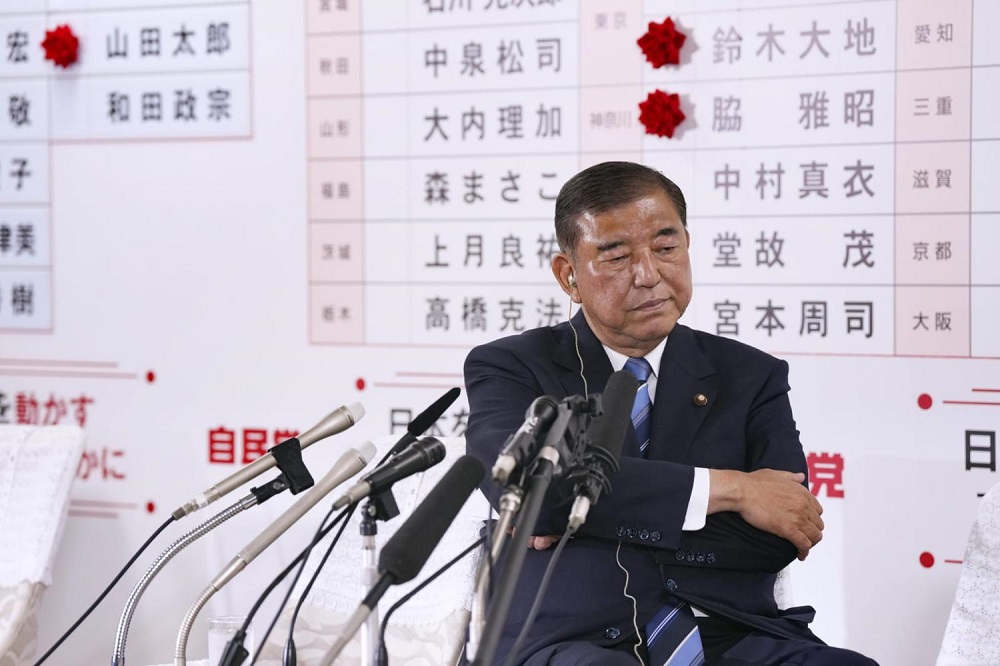What now for the yen?
Japan’s ruling LDP, in conjunction with its junior partner Komeito, has just lost its majority in the Upper House thanks, in part, to the rise of the nationalist Sanseito Party. But does this imply more vulnerability for the yen?

Steven Barrow, Head of Standard Bank G10 Strategy, thinks there are a number of reasons why the yen will not prove vulnerable in spite of the increasingly difficult position of the LDP government. The LDP needed to win 50 seats in Upper House elections at the weekend, but fell three short and has subsequently lost majorities in both the Lower and Upper House for the first time since the 1950s.
The first reason not to panic is that the weekend election result won’t lead to a change in government, but might lead to a change in Prime Minister should PM Ishida resign or find himself forced out. Changes in LDP leadership have been all too frequent over the years but have not led to a political crisis that imperils the currency.
A second point is that, in some ways, the weakness of the yen has played a role in the rise of nationalism and hence success of a party such as Sanseito, which was only formed after the pandemic. The weak yen has, for instance, encouraged tourism into the country. That might be beneficial for growth, but complaints about overtourism, which we see in many other countries as well around the world, especially Southern Europe, help fuel those that extol the virtues of a more nationalistic bias. A cheaper cost of living might have also spurred more permanent migration to the country and, as you can imagine, the theme of excessive inward migration plays right into the hands of the more nationalist parties.
On the flipside, domestic residents find it harder to afford foreign trips, whether temporary or permanent and this too builds resentment towards the government. There might be little the authorities can do about this but, as a minimum, Steven Barrow suspects they will work hard to avoid excessive weakness in the yen. Indeed, the electoral defeat at the weekend might encourage policymakers to become even more aggressive when it comes to tolerating yen weakness.
A third factor is that the loss of the LDP’s majority in the Upper House, to go with the same fate in earlier Lower House elections, implies a loosening of fiscal policy as it seeks to appease increasingly agitated opposition parties. Already, there is talk that opposition parties could force the LDP to lower the much-hated sales tax. That might reduce inflation temporarily but we still think it would embolden the BoJ into even more rate hikes, and that could lift the value of the yen. At the same time, we do have to recognise some of the negative influences that could result from the poor election showing. One of these is diminution in the yen’s safe-asset position. For if such status is, at least in part, influenced by the stability of the government, the LDP’s difficult position could put the yen in jeopardy.
This being said, the safe asset status of the US dollar appears to be in greater question given the uncertainty created by President Trump, especially as it relates to tariffs, and as reflected in the inverse correlation between ‘risk’ and the US dollar that we saw back in April. A corollary of this is that we have to bear in mind the repatriation risk, should Japanese investors scale back their US assets by either repatriating funds or reallocating them to other countries. US populism/nationalism poses far more risk to the dollar in our view than Japanese populism/nationalism to the yen. This is because the US is beholden to other countries for capital inflows: Japan is not.
“All told, we see the weekend elections as a political setback for the LDP, albeit one that would not have been a surprise. But this does not imply a setback for the yen, particularly against the dollar. We still see dollar/yen falling to 130 or below given time”, said Steven Barrow.








